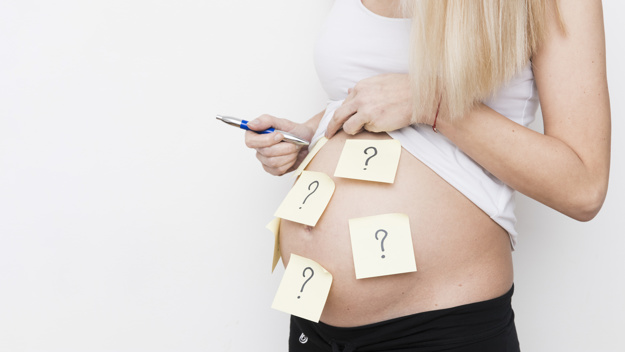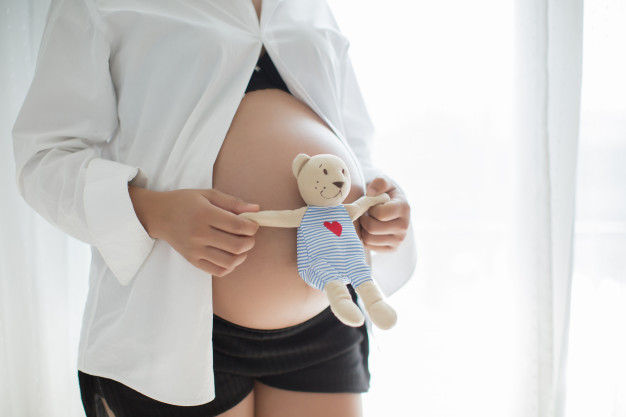Afortunadamente en estos meses vivimos una época en la que nuestro cabello luce con más brillo y volumen, que ayudan a que una se vea, sin duda, mucho más gruapa y radiante.
Pero para ser francas… esa preciosa melena no va a durar para siempre, una lástima, ya que cuando nace nuestro bebé, el cabello se deteriora: es muy común que notemos que se cae mucho más y que casi no tiene brillo.
Pero debes estar tranquila, meses después el pelo volverá a ser el de siempre. Es muy importante cuidarlo desde el primer día del embarazo y, así, su recuperación será más fácil y el resultado llegará antes de lo esperado.
Las futuras mamás, y las mamás, muchas veces nos escriben por Facebook o bien por Instagram con dudas o preguntas de como cuidar el cabello sin dañar al bebé o bien qué hacer con su melena después del nacimiento del bebé.
¿Puedo teñirme el cabello durante el embarazo?
¿Es normal una pérdida tan masiva del cabello posparto?
¿Mi cabello volverá a recuperará fuerza y brillo?
Contestando a las preguntas más generales que nos habeís hecho llegar, puedes continuar tiñiéndote el cabello. El cabello no absorbe suficientes químicos dañinos para afectarte a ti o bien a tu bebé. Obviamente, conviene seguir los consejos de tu peluquero y optar por tintes naturales, si es posible, aunque hoy en día, las coloraciones, tienen un contenido muy bajo en amoniaco y están libres de sustancias tóxicas.
En segundo lugar, la caída capilar postparto es un proceso normal y temporal, no relacionado con la lactancia materna. En unos 6 o 12 meses debería de volver a su ciclo habitual, así que no te preocupues y ves reforzando tu cabello con nuestra loción Infinity Age, ya que de esta manera te crecerá más fuerte y sano y notarás la diferencia.
Como ya sabéis, el cabello está hecho de proteínas, por lo que es muy importante comer alimentos ricos en proteínas, como por ejemplo carne, pescado, huevos, tofu y lentejas. También puede tomar suplementos con vitaminas y minerales, si el médico lo recomienda.
Y para acabar y más que nunca, utiliza productos específicos para tu cabello y fudamental que sean de alta calidad. Una buena combinacion de productos Broaer, con resultados desde el primer día, son el tratamiento en ampollas Nutritive Revitalizer y la mascarilla capilar sin aclarado Keratin Plus. Ayudarán a que el cabello se regenere y proporcionarán la nutrición y la hidratación necesarias.
Dado que tu cabello es más débil de lo normal, evita utilizar cepillos, intenta que sean suaves y respetuosos con tu pelo, así como el uso excesivo de calor y plancha. Y no te olvides del cuero cabelludo. Si el pH no está equilibrado, o si está demasiado seco o graso, el cabello no estará sano. Utiliza un champú y acondicionador diario adecuados a tus necesidades.
Y no olvides que todo lo que está pasándote es una consecuencia normal del cambio más importante de tu vida. ¡Valdrá la pena!
¿Hemos resuelto tus dudas sobre el EMBARAZO Y CUIDADO DEL CABELLO?
PREGNANCY AND HAIR CARE
Pregnancy is a unique experience that involves expectations, emotions, and a big change in your life, starting from your body, both during pregnancy and after your baby is born. Future and new mums want to do what is best for their baby’s health, which often means doubts and questions even on regular hair care:
Should I dye my hair during pregnancy?
Is this massive postpartum hair loss normal?
Will my hair ever recover strength and shine?
As Hair Care Specialists, the first thing we’d like to say is that you should continue to take care of your hair and do not panic about some inevitable pregnancy and post- postpartum effects. It is all part of the miracle of life – allow us to say J.
Going back to the above questions, Yes, you can continue to dye your hair. Your hair doesn’t absorb enough harmful chemicals to affect you or your baby. Obviously, go to your usual hair salon and let your hairdresser recommend you what is best for your hair as it is, and stick to more natural hair dyes – today’s hair colors are very low in ammonia and free of several harmful toxic substances.
Secondly, postpartum hair loss is a normal and temporary process, unrelated to breastfeeding. Your should return to usual hair growth cycle between 6 and 12 months after birth. True is also that during your pregnancy, on the contrary, you had gorgeously thick and shiny hair, due to the increase of estrogen (hormone) levels.
However, you CAN do something about it J Good diet and good hair care is the basics. Your hair is made of protein, so eating foods that are rich in proteins, such as meat, fish, eggs, tofu, and lentils, is very important. You may also take supplements with vitamins and minerals, if your doctor recommends it .
More than ever, use high-quality and specific hair care products. A good Broaer combo is Nutritive Revitalizer ampoule-treatments and No-Rinse Keratin Plus hair mask. They will help hair to regenerate and provide the nourishment and hydration needed. Since your hair is weaker than normal, avoid the use of brushes that stress your hair too much, as well as an excessive use of heat and flat iron. Try styling products, such as mousses or texturizers that “bulk up” the appearance of your hair.
Don’t forget about your hair scalp. If the pH is out of balance, or it’s too dry or oily, your hair won’t be healthy. Use a proper daily shampoo and conditioner and keep your scalp clean – take a scalp treatment at your hair salon, if necessary. It will help a lot.
But most of all, take all this as a normal consequence of the greatest change in your life. It is definitively worthy


